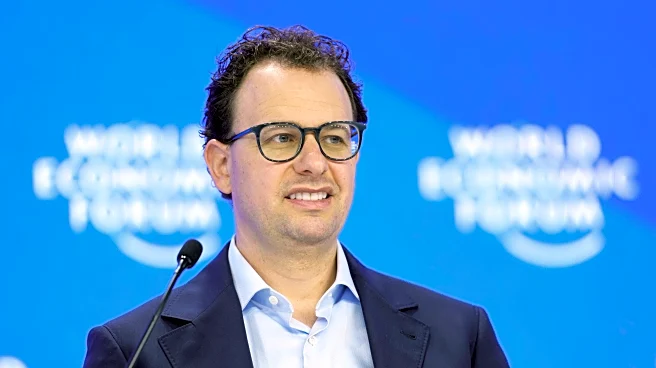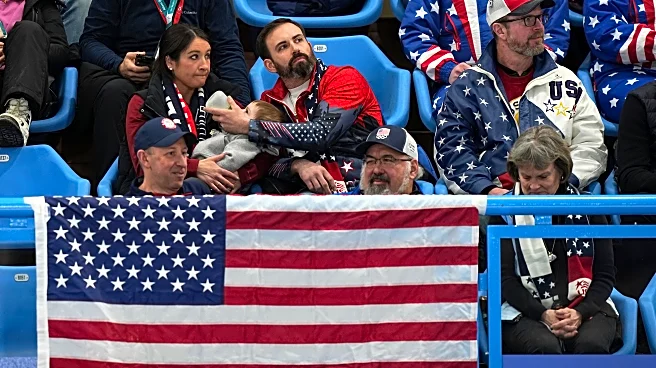What's Happening?
The Pittsburgh Penguins and Minnesota Wild collaborated with the Make-A-Wish Foundation to create a memorable day for 10-year-old Weston Paszkiewicz, who is battling leukemia. As part of the initiative, Paszkiewicz signed a one-day contract with the Minnesota Wild,
allowing him to experience life as an NHL player. He spent the morning in the Wild's locker room, where he had his own stall and jersey. Later, he took to the ice wearing a No. 83 jersey, scoring goals and receiving cheers and stick taps from the players. The event was designed to provide joy and encouragement to Paszkiewicz, highlighting the support from his family and the NHL community.
Why It's Important?
This event underscores the significant role that sports organizations can play in community engagement and social responsibility. By partnering with the Make-A-Wish Foundation, the Penguins and Wild not only provided a once-in-a-lifetime experience for a young fan but also raised awareness about the challenges faced by children with serious illnesses. Such initiatives can have a profound impact on the lives of participants, offering them hope and happiness during difficult times. Additionally, it highlights the compassionate side of professional sports, where athletes and teams use their platform to make a positive difference in society.
What's Next?
While the immediate event has concluded, the impact of such experiences can have lasting effects on both the participants and the organizations involved. The NHL and its teams may continue to engage in similar initiatives, fostering a culture of giving back and community involvement. For Weston Paszkiewicz, the memories of this day may serve as a source of strength and motivation in his ongoing battle with leukemia. The Make-A-Wish Foundation is likely to continue its mission of granting wishes to children with critical illnesses, with the support of various partners.
Beyond the Headlines
This story also highlights the broader ethical and cultural dimensions of corporate social responsibility in sports. By engaging in charitable activities, sports teams can enhance their public image and build stronger connections with their communities. It also raises awareness about the importance of supporting children with life-threatening conditions, encouraging more individuals and organizations to contribute to such causes. The emotional and psychological benefits for the children involved are immeasurable, providing them with cherished memories and a sense of normalcy amidst their health struggles.
















